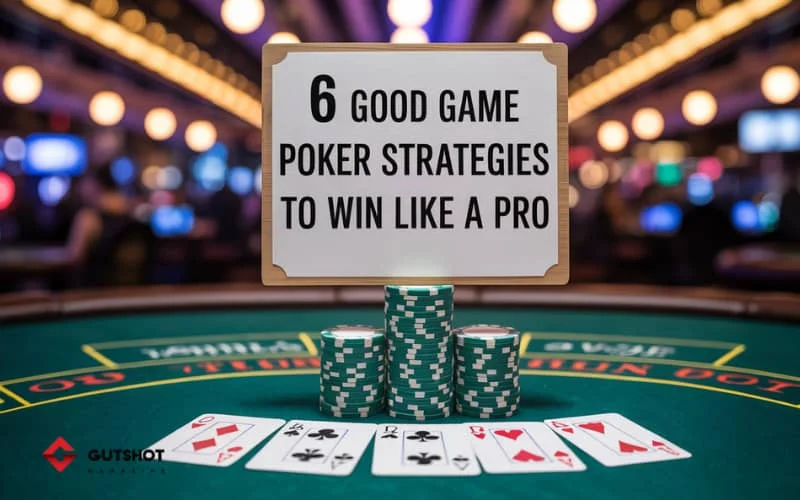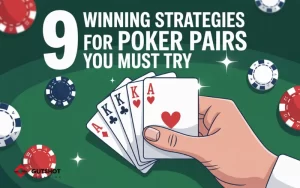Poker is one of the most popular card games in the world, and with the rise of online platforms, it has become more accessible than ever. Among the many platforms Gutshot available today, good game poker stands out as an exciting and competitive option for players of all levels. Whether you are a beginner or a seasoned player, having the right strategies is essential to maximize your winning chances. This guide explores six powerful good game poker strategies that can help you improve your gameplay and win like a professional.
Understanding the Basics of Good Game Poker
Before diving into strategies, it is important to understand what makes good game poker unique. Like traditional poker, the game is about making the best decisions with the information available. The rules may vary depending on the type of poker you play, such as Texas Hold’em or Omaha, but the key remains the same: combine skill, patience, and strategy to outsmart your opponents. Good game poker emphasizes consistency and decision-making rather than relying purely on luck.
Strategy 1: Master the Art of Starting Hands
One of the most important elements in good game poker is knowing which starting hands to play and which to fold. Many beginners make the mistake of playing too many weak hands, hoping luck will save them. In reality, professionals know that folding poor hands is just as important as playing strong ones. Starting with high pairs like aces, kings, or queens, and strong connectors like ace-king or king-queen, can give you an edge. By focusing only on quality starting hands, you avoid unnecessary risks and position yourself for long-term success.
Strategy 2: Pay Attention to Position
Position plays a critical role in poker and is a game-changer in good game poker. The later your position at the table, the more information you have about your opponents’ moves. For example, if you are in the dealer position, you get to act last, allowing you to analyze everyone else’s actions before making your decision. This advantage helps you control the pace of the game and bluff more effectively. Being mindful of your position allows you to play more hands when you are in late position and stay cautious when you are in early position.
Strategy 3: Use Bluffing Wisely
Bluffing is one of the most well-known tactics in poker, but it requires skill and timing. In good game poker, bluffing too often can backfire because experienced opponents will quickly identify your patterns. The key is to bluff in situations where it makes sense. For instance, if the community cards suggest a possible flush or straight and you have been playing conservatively, a well-timed bluff can push your opponent to fold. Bluffing works best when combined with a strong understanding of your opponent’s behavior and betting habits.
Strategy 4: Manage Your Bankroll Effectively
Even the most skilled poker players can lose if they do not manage their bankroll properly. Good game poker is not just about winning individual hands but about sustaining long-term success. Set aside a dedicated budget for your poker sessions and avoid betting more than you can afford to lose. Professionals often follow the rule of never risking more than a small percentage of their total bankroll in a single game. This disciplined approach helps reduce stress and ensures you stay in control, even during losing streaks.

Strategy 5: Study Opponent Behavior
A major advantage in good game poker comes from reading your opponents. This involves analyzing their betting patterns, timing, and reactions. For example, if a player consistently raises before the flop, they might have a strong hand. On the other hand, sudden hesitation or small bets might signal weakness. Online poker platforms also provide useful data such as win rates and player statistics, which you can use to refine your strategies. By studying your opponents carefully, you can make better decisions and exploit their weaknesses.
Strategy 6: Stay Emotionally Disciplined
Emotional control is often the difference between winning and losing in poker. Good game poker requires you to stay calm under pressure and avoid making impulsive decisions. Many players fall victim to what is known as tilt, where frustration from a bad beat leads to reckless betting. To win like a pro, you must remain disciplined, stick to your strategy, and avoid chasing losses. Taking short breaks during play can also help clear your mind and refocus on the game.
Building Long-Term Success in Good Game Poker
Winning at poker is not about luck alone. It requires practice, analysis, and continuous learning. By applying these six strategies—mastering starting hands, using your position, bluffing wisely, managing your bankroll, studying opponents, and staying emotionally disciplined—you can significantly improve your results in good game poker.
Consistency is key, and over time, these strategies will become second nature. As you grow more confident, you can explore advanced techniques like pot odds, range analysis, and tournament strategies. With patience and persistence, good game poker can become not only a fun pastime but also a profitable one.
Conclusion
Poker is a game of strategy, skill, and mental strength. Good game poker gives players the chance to test their abilities against opponents worldwide while enjoying the thrill of competition. By focusing on smart decision-making, practicing discipline, and applying proven strategies, you can elevate your poker skills and win like a pro. Remember that every hand is a new opportunity to learn and improve, and with these strategies, you will be well on your way to becoming a strong and successful player in good game poker.









